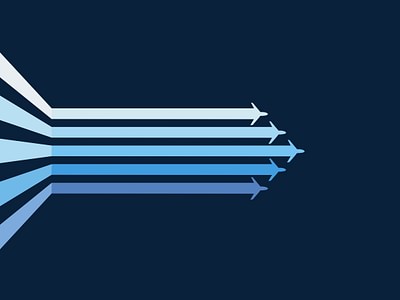How to Buy and Lease an Airplane: A Pilot's Guide to Tax Benefits and Savings
Are you a pilot looking to buy an airplane for your child to learn how to fly, or perhaps a group of pilots interested in sharing the initial purchase cost? Purchasing an aircraft can be a significant investment, but with the right strategies, it can offer substantial tax benefits and even the potential to break even or make a small profit. In this guide, we'll walk you through the process of buying and leasing an airplane, based on expert advice from Toby Mathis.
Introduction
Owning an airplane can be a dream come true for many pilots. However, the financial implications often deter potential buyers. This guide aims to simplify the process, highlighting how to maximize tax benefits and potentially offset costs through strategic leasing.
Why Consider Buying an Airplane?
For pilots, owning an aircraft offers more than just convenience and pride of ownership. It can also provide valuable opportunities for tax savings, particularly if the aircraft is used for business purposes. By properly structuring the purchase and lease arrangement, you can enjoy the benefits of aircraft ownership while minimizing your tax liability.
Step-by-Step Guide to Buying and Leasing an Airplane
1. Set Up an LLC
The first step in purchasing an airplane is to set up a Limited Liability Company (LLC). This legal structure will own the aircraft, helping to separate personal and business finances and providing liability protection. Setting up an LLC is straightforward and can typically be done online through your state's business registration website or an online service. Be sure to consult a tax professional before proceeding.
2. Purchase the Aircraft
Once the LLC is established, proceed with the purchase of the aircraft. Financing options are available, and it's essential to consider the long-term financial implications. Make sure the purchase price aligns with your budget and financial goals. Research different aircraft models and their associated costs, and consult with aviation finance specialists to explore your financing options.
3. Engage an Aviation Leasing Company
To maximize the tax benefits, it's crucial to treat the aircraft as a business asset. Engage an aviation leasing company to manage your aircraft and put it into a leasing pool. This arrangement ensures the aircraft is available for lease when not in personal use, helping to generate income and qualify for business deductions. Look for reputable leasing companies with a proven track record in managing and leasing aircraft.
4. Lease Back to a Flight School
Leasing your aircraft to a flight school can be an excellent way to ensure consistent use and income. This arrangement not only helps cover the operational costs but also provides an opportunity for your child or other aspiring pilots to use the aircraft at fair market value. Partner with local flight schools and negotiate lease agreements that benefit both parties.
Tax Benefits of Aircraft Ownership
By structuring the aircraft purchase and lease correctly, you can take advantage of several tax benefits:
- Depreciation: You can depreciate the aircraft over its useful life, significantly reducing taxable income.
- Business Deductions: Operating expenses, including maintenance, insurance, and interest on financing, can be deducted as business expenses.
- Bonus Depreciation: Under current tax laws, you may be able to take advantage of bonus depreciation, allowing for a significant upfront deduction.
Key Considerations and Best Practices
When purchasing and leasing an aircraft, keep the following best practices in mind:
- Maintain Accurate Records: Keep detailed records of all expenses and income related to the aircraft to ensure compliance with tax regulations.
- Consult a Tax Professional: Work with a tax professional experienced in aviation to navigate the complexities of tax laws and maximize your benefits.
- Plan for Personal Use: If you plan to use the aircraft personally, ensure you pay fair market value for those days to avoid potential tax issues.
Conclusion
Buying and leasing an aircraft can be a financially savvy decision for pilots, offering both convenience and substantial tax benefits. By following the steps outlined in this guide and leveraging expert advice, you can make informed decisions that enhance your financial well-being while enjoying the perks of aircraft ownership.
For more detailed insights and personalized advice, listen to episode #58 of the Passive Income Pilots podcast with Toby Mathis, where we dive deeper into the tax strategies and benefits of aircraft ownership.
Join our Facebook Community and comment!
